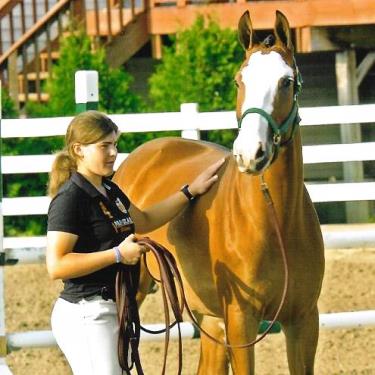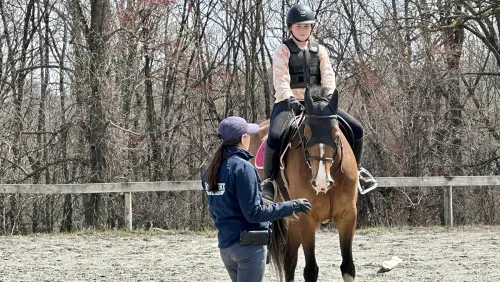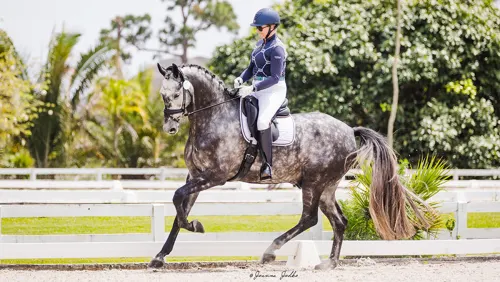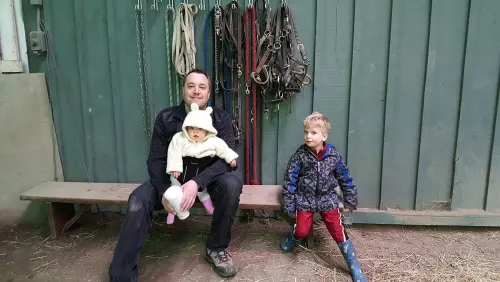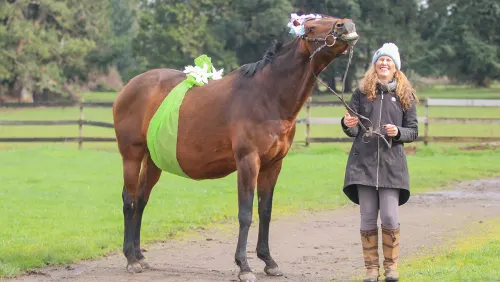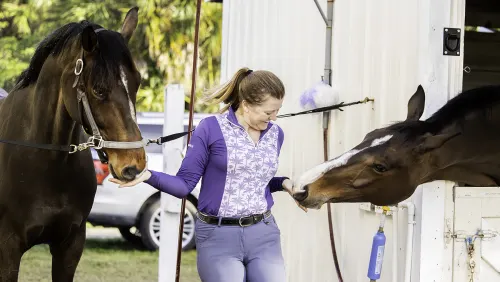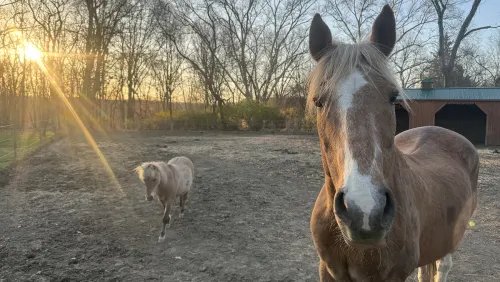Have you ever heard the saying “you are a product of your upbringing?” I truly believe that animals and people become what they are because of how they were raised and the environment in which they were raised.
That is not to say that you are going to be exactly like the environment where you grew up, it is to say that it will most certainly have an impact on who you become. I know that I am who I am today because of my parents and how they raised me. I have grown up as my mom’s mini-me. Just like her, I am a workaholic, a perfectionist, and a compassionate person. We are all born with certain traits or characteristics, but these can be suppressed or brought out depending on the atmosphere. Horses in many instances are the same way.
As much as most people would like to say ‘oh, that’s just a good horse,’ or ‘that horse just has no talent;’ they really are a product of how they were raised. A “good” horse can easily become a “bad” horse and vice versa.
My sister, Alison, brought this topic up to me a few weeks ago when we were at a show watching the schooling ring. After watching for a bit we could start to see and “know” which riders started, or have brought along certain horses. We started talking about this because we have a lot of young horses in our barn right now that we are bringing along and will begin showing soon.
Our oldest horse is 8 years old currently, with the exception of our two dearly beloved 20-year-old retirees. Although when we were younger we started a just few of our horses, we now start pretty much all of our own horses for the show ring; raising foals to become the best horse they can be regardless of their future role in life. My sister, Alison, and I were chatting about the importance of “raising” a horse right and the bearing it can have on them becoming successful or not.
Watching people ride young horses can be a joy—or it can be painful. It can be much like viewing a parent pushing their child in a swing at the park, versus observing the frayed parent in the store who is overly harsh with a taxing child.
ADVERTISEMENT
When I was younger, my sister bought a very talented 7-year-old gelding. She was able to afford him because the owner accepted payments over time. Sadly, this horse presented himself as being very anxious and unable to perform to his full talent because he had been pushed too hard and fast for a young, immature horse. He had been overfaced showing in classes that were too challenging to a young horse’s mind. But because he demonstrated physical prowess, it was assumed that he was ready for more.
As a result of mistakes due to lack of experience, he became super nervous and lost all rideability. We worked for years to try to build his confidence and bring him back up slowly, but we never really were able to bring out his full potential after he had an unfortunate upbringing. Was it a lack of knowledge or simply greed which resulted in this travesty? One may never know.
With newfound technology that allows us to clone horses, my above questions are about to be tested, in my opinion. I personally believe that two horses that are virtually the same horse according to their DNA will be different because of how they were brought along. Who knows—they could be even better. I do realize and understand that we are cloning mainly for the genetics factor. So many of these cloned horses have been cloned because we want to be able to breed them and have offspring from their lines.
This can even go so far back as to wonder if their mother had an influence on them. In the trotting racing world, they truly believe that horses born from their “natural” mother are going to be better than embryo-transfer foals. But I know that several embryo transfer foals in the show jumping world have gone on to be spectacular, so who knows what to say on that.
Will that original horse’s dam have had an influence on them that the recipient mare from who the clone is born from will not? Will the fact that two different handlers and riders brought along the original and the clone have an impact?
No two riders or handlers are the same; we all are different, and how we treat a horse will have an impact. The way we train the horse will also have an impact.
ADVERTISEMENT
A horse that is taught manners from the time it is young will be more willing to listen and cooperate when it is put into training. I am always telling my sister that she must be more firm and make her horses listen to her as well as mind their manners because it will only give them a brighter future. Horses that learn it is OK to be pushy, to bite, and to be disobedient will carry that over into when they are being ridden. You asked them to halt, but it took five strides before they listened.
But it’s important that enforcing good behavior doesn’t veer into anger or violence. People that lose their patience, get angry, or act abusively towards their animals leave a lasting impact.
Horses lose their heart, their willingness, and their bravery when treated unfairly, and it will take a long time of undoing to get it back—if you can get it back. We must be compassionate while being firm in our manner of handling our young horses and also remember that everything we do with and towards them will have an influence on them because they are far smarter than most people think.
Chronicle blogger Taylor Flury rides out of her family’s AliBoo Farm in Minooka, Ill., and competes primarily in the jumpers. Flury’s top mount is the U.S.-bred Role Model (Roc USA—Darling Devil), who claimed U.S. Equestrian Federation Horse of the Year titles in 2011 and 2012 in the 5- and 6-Year-Old Jumper divisions. Their story includes brain surgeries and broken shoulders along with the blue ribbons.
Want to know more about Taylor and Role Model? Read the article that appeared in the March 19, 2012 issue of The Chronicle of the Horse.

